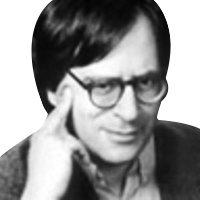TORONTO—In this era of internet outrages and Twitter wars, celebrities, presumably to save their own hides, are behaving increasingly like politicians and pondering the implications of every word they utter. In fact, at a time when the president of the United States is not particularly cautious about the words he chooses to utter, mere celebrities are beginning to seem more like politicians than the former reality-show host who now occupies the White House.
This paradox became clear toward the end of an extremely brief interview I conducted with Matthew McConaughey at the Toronto International Film Festival. In town to promote his starring role in White Boy Rick, a “Special Presentation” at the festival, the usually amiable star—of everything from How to Lose a Guy in 10 Days to Dallas Buyers Club— became considerably less amiable when confronted with some remarks he made to a BBC interviewer concerning Donald Trump’s election in early 2017. During a period when most Hollywood actors were disassociating themselves from the newly elected president, McConaughey told Andrew Marr that “it’s time for us to embrace, shake hands with this fact and be constructive with him over the next four years.”
After McConaughey gave me some polite answers to questions concerning his role as Richard Wershe Sr. in White Boy Rick (which nevertheless mirrored observations on the film that he had already expressed in previous interviews), it seemed irresistible, if perhaps a bit cheeky, to ask him if he still stood by his conviction to “be constructive” when dealing with Trump.
“What I said, or thought I said,” choosing his words with some care, “is that people were in denial and we have to accept the fact that he’s president.”
“But surely you must have your own views concerning the president?” I insisted.
“Yes, I do,” he conceded. “But to comment on him in this context, I’d have to be on camera and unedited.”
Wondering if he felt burned by being regularly misquoted, he demurred but added: “It’s just that I don’t want to become clickbait. What you say is just turned into a headline that people click on.”
When I moved on to asking his view of the #MeToo movement, and if he’s discussed the topic with any of the women he’s worked with in the film industry, his remarks came off as well-intentioned but somewhat rote: “It’s an issue I have discussed with many women. We’re making progress, but are not there yet. Being paid equally is extremely important. It’s the same with race. Someday we’ll get to the point where women and minorities have equal opportunities. But we’re not there.” These are admirable sentiments, to be sure—even if they resemble the sort of boilerplate churned out by politicians.
Of course, while McConaughey might not have anything particularly interesting to add to the debates swirling around #MeToo and Donald Trump, he’s notably more voluble when talking about the craft of acting. Known for researching even his most frivolous roles, McConaughey admitted that it was a challenge to portray a man he considered a failure. Rick Wershe Sr., who died in 2014, was a Detroit-based gun-dealer, self-admitted “hustler” and FBI informant. He encouraged his son to become involved with the illicit drug trade at the age of 14 and also aided him in establishing a working relationship with the FBI. McConaughey emphasizes that while “people might call him vulnerable and well-meaning, he was a bad father.”
But, I interject, don’t actors usually try to like the characters they’re playing?
“No, I don’t have to find him likable,” he insisted. “People use that word ‘sympathetic.’ Even if you empathize with him, you don’t have to find him sympathetic. That’s not necessarily the actor’s job; it’s their job to get them to empathize, but not necessarily to find characters sympathetic.”

Richie Merritt and Matthew McConaughey in 'White Boy Rick'
Columbia PicturesWhen I ponder whether the film’s downbeat conclusion—it ends with a title card informing us that Wershe Jr. was sentenced to 30 years in jail at the age of 17—might be viewed as a tragic outcome of the Reagan era’s “war on drugs,” the question seems a bit too broadly sociological for his taste: “Well, there are many ways of looking at it. This was the ‘80s when neighborhoods in Detroit were falling apart. You could also see it in Cleveland when we were shooting the film. It’s the same cycle coming back again—the problem of single-parent families.”
One of the main challenges McConaughey faced while shooting the film involved working with the novice actor who plays his son, Richie Merritt. Asked about this experience, he replies: “You mean, what was it like working with a non-actor, pulled out of school in Baltimore, who I don’t think had even heard of me and didn’t know how to make his mark and do all the things I’ve learned as an actor over all these years?” McConaughey essentially concludes that it was easiest for Merritt to relate to his screen father on screen if he viewed him as another member of an extended cinematic family.
After all, as McConaughey acknowledged, he was pretty much a novice when, 25 years ago, he accepted a pivotal role in Richard Linklater’s Dazed and Confused. Although he had worked on a Trisha Yearwood music video and acted in some commercials, he claims that he basically learned how to become an actor through being a member of the Dazed and Confused surrogate family. McConaughey would clearly prefer to mull over family dynamics than spend much time dissecting Trump’s presidency.






